What Is State Lobbying?
The average citizen thinks of lobbying as something that takes place only in Washington DC, if they think of it at all. As professional lobbyists know, lobbying at the state level is just as important. Advancing the cause of a trade association, a local community, or a non-profit group requires knowing the laws and practices for lobbying in your state.
There are 50 states in the Union, and no fewer than 50 sets of state laws that govern lobbying, so it’s easiest to start by identifying key similarities among the states. All of them generally define lobbying as an effort to influence the actions of government. They define a lobbyist as someone who is paid to perform lobbying efforts. Only a few states limit the definition to those who meet a minimum level of time and money spent to lobby (including Hawaii, Minnesota, and New York). Three states, namely Delaware, Kansas, and Texas, consider as lobbying any amount of entertainment, food and beverages, recreational events, or gifts to legislators. All other states require disclosure of these activities and define allowable amounts.1
Origins of State Lobbying
Following Independence in 1776, eight of the original 12 U.S. states included what was known as “the right to petition” in their state constitutions. The wording reflected the language of the Bill of Rights’ First Amendment, which acknowledges the “right to petition Government for redress of grievances.” In fact, lobbying was almost entirely targeted toward the state level until the 20th century,2 when the emphasis gradually shifted toward the federal government.
Professional lobbying that emphasized federal policy grew in power and influence, while the awareness and prominence of grassroots lobbying lost ground. Grassroots lobbying refers to “ground-up” campaigns, usually organized by locally based groups, and relying on intensive letter-writing campaigns that attract the participation of large numbers of constituents—also known as voters. By the late 20th century, the extraordinary power of the Internet as a communication tool began to impact lobbying at every level, and reconnect state, local, and federal interests. In 2004, Congress logged in receipt of 200 million direct communications, including through Internet contact, equaling a fourfold increase since 1995.3
This super-powered communication tool has helped to inspire one innovative group of Washington DC lobbyists to develop a multi-tiered program that leverages state and local interests to influence policy at all levels. LobbyIt.com offers a grassroots component that includes a customized online Advocacy Hub, linking local stakeholders with supporters around the world. The site provides templates of targeted membership letters and call scripts that members and employees can use to build nationwide support. It harnesses the sophistication of DC lobbying firms to drill down and connect with local and state legislators, both online and through in-person site visits. Clients also have access to legislative tracking and reporting in all 50 states.
Effective public policy lobbying is no longer limited to the realm of big money and closed-door meetings. It has been brought out into the light, with LobbyIt.com’s reasonably priced package options, clearly defined deliverables, and transparent reporting of results. Contact them at 202-587-2736 for more information about services and pricing.
Sources:

